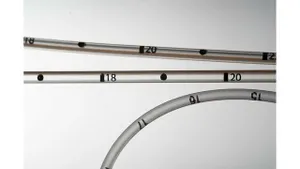Corn-based isosorbide could serve as BPA replacement
Agricultural processing giant Archer Daniels Midland Company has begun marketing isosorbide as part of its Evolution Chemicals product range. Isosorbide, derived from corn, is a potential alternative to the petroleum-based chemical Bisphenol A in plastics, epoxy resin and other applications.
December 8, 2010
Agricultural processing giant Archer Daniels Midland Company has begun marketing isosorbide as part of its Evolution Chemicals product range. Isosorbide, derived from corn, is a potential alternative to the petroleum-based chemical Bisphenol A in plastics, epoxy resin and other applications.
ADM (Decatur, IL) claims to be the first company in North America to offer renewable isosorbide on a commercial scale. Bisphenol A, the chemical it says can be replaced, is used during production of polycarbonate and epoxy, among other materials, but it first gathered widespread attention when it was proven to mimic human hormones and possibly lead to negative health affects, especially in babies or fetuses. (Read our interview with the scientist who discovered BPA's estrogen mimicking affect, and here an industry defense of the chemical from Steven Hentges, executive director of the American Chemistry Council's Polycarbonate/BPA Global Group.) Both the U.S. Food and Drug Administration and the National Toxicology Program at the National Institutes of Health, among other government watchdogs around the world, have expressed concern about the potential health effects associated with BPA
Isosorbide can be used in polyesters for inks, toners, powder coatings, packaging and durable goods; polyurethanes for foams and coatings; polycarbonates for durable goods and optical media; epoxy resins for paints; and detergents, surfactants and additives for personal care and consumer products. ADM currently offers isosorbide in both a technical grade (97% pure) and a polymer grade (99% pure). —[email protected]
About the Author(s)
You May Also Like


